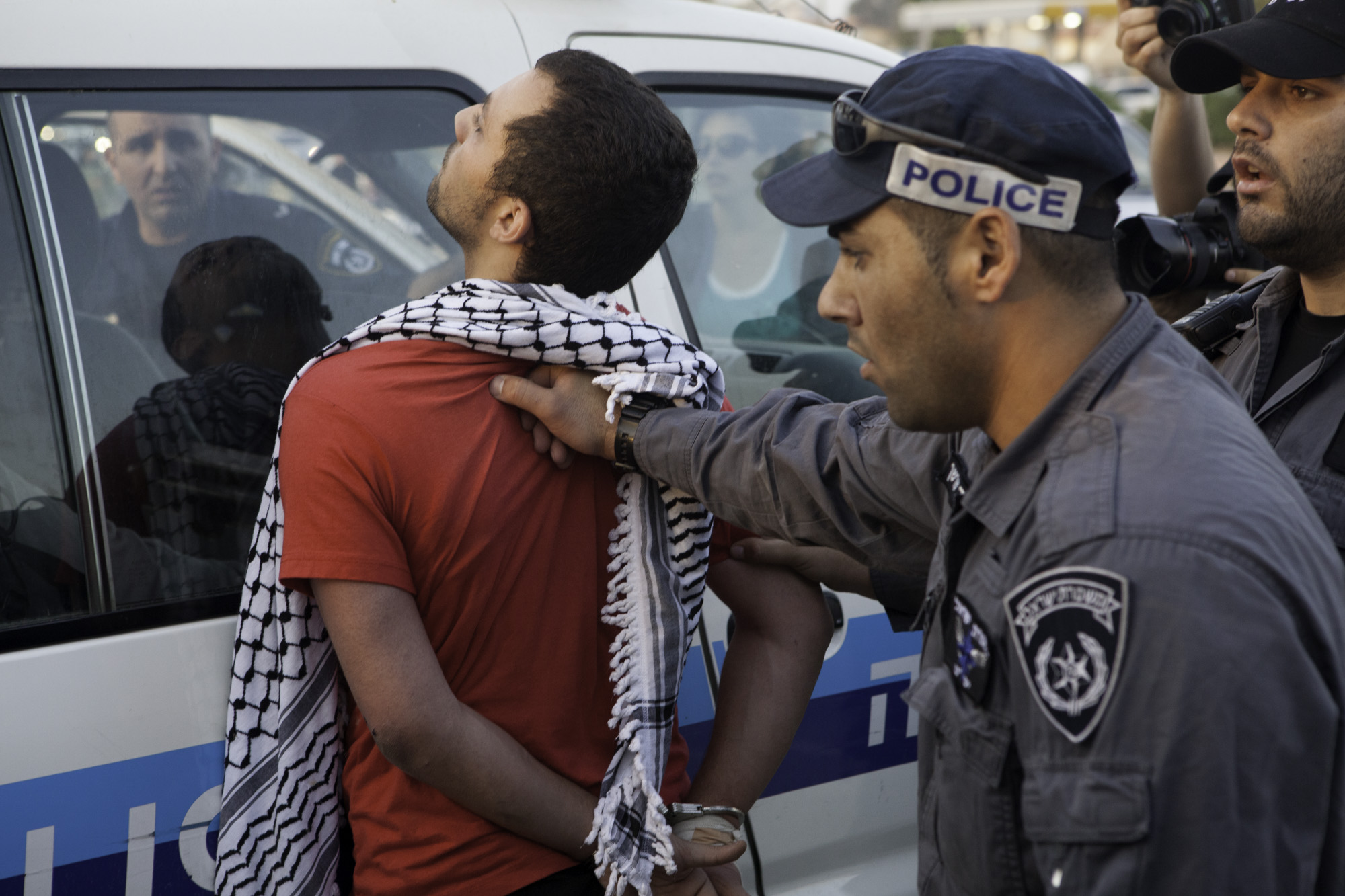Israel's new Anti-Terror Law violates Arab citizens' human rights
Adalah issued a strong response on 16 June 2016 to the Israeli Knesset's approval of the new Anti-Terror Law.
The new law, approved on 15 June 2016 by the Israeli parliament by a vote of 57 to 16, provides new tools to the Israeli authorities, incorporating severe provisions of the Emergency Regulations, which were promulgated during the British Mandate, into Israeli criminal law.

Israeli police arrest a Palestinian political activist in the city of Ramle (File photo/Mati Milstein)
The Anti-Terror Law, which is designed to further suppress the struggle of Palestinian citizens of Israel and the pursuit of their political activities in support of Palestinians living under occupation in the West Bank and the Gaza Strip, will significantly harm the rights of Palestinians detained for suspected security-related offenses.
The new law, which spans over 100 pages in Hebrew, will allow for the widespread use of "secret evidence" by the state prosecution, thereby impeding the possibility of substantively objecting to repressive decisions based on their merits before the judiciary. The law also establishes new criminal offenses such as public expressions of support or empathy for terror organizations, and significantly increases the potential sentences for such offenses.
"This new law marks Palestinian citizens of Israel as suspects due simply to the fact that they are Arab. Methods of punishment established by the law do not align with the substantive due process principles of criminal law, among other constitutional rights protections, and stand in direct contrast to even the most basic defense of human rights. The newly-approved Anti-Terror Law integrates British Mandate-era Emergency Regulations and other emergency guidelines into the Israeli law books. It paints the political activities and expression of Arabs in Israel – including those of a social, humanitarian and charitable nature – with a hostile and war-like façade, reclassifying them as acts of terror. This law essentially criminalizes the social and political affinity that Palestinian citizens of Israel feel with the Palestinian people and their just struggle against the occupation."
In 2014, the UN Human Rights Committee in its concluding observations on Israel (para. 11) raised concerns about “the definition of terrorism, and the legal safeguards afforded to persons suspected of, or charged with, a terrorist or related crime contained in the draft law currently under consideration.” It urged Israel to ensure that the legislation fully complies with its obligations under the International Covenant on Civil and Political Rights, which Israel ratified in 1991.











